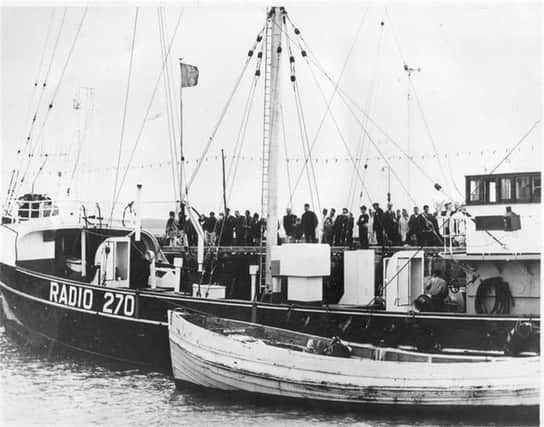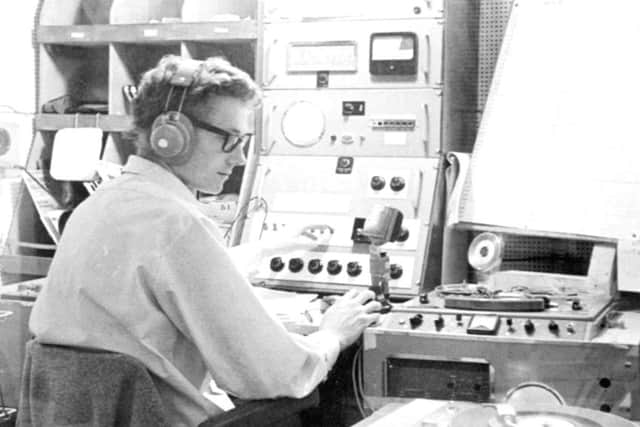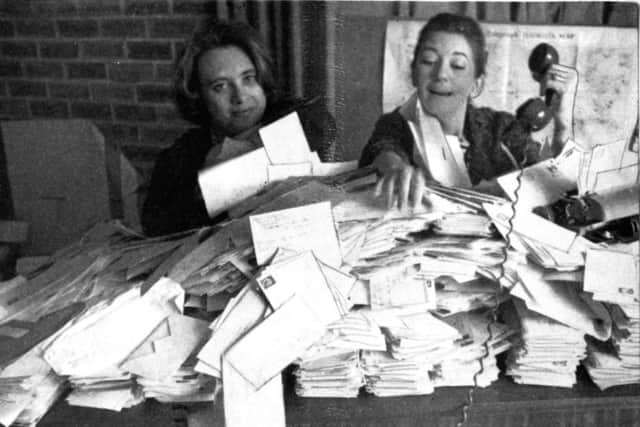Trouble in the air 50 years ago... How they sank Scarborough's pirates


Radio 270 was Yorkshire’s Radio Caroline - a pirate station that broadcast pop music to the culture-starved teenagers of the region. It fell silent, along with the other pirate ships, exactly half a century ago, when Tony Benn’s Marine Offences Act made it a crime for UK citizens to broadcast from offshore.
They were going to mark the occasion with a temporary, legal, station on one of the Scarborough pleasure boats, taking nostalgia seekers out to where the ship used to be.
Advertisement
Hide AdAdvertisement
Hide Ad“But the response wasn’t good enough to justify the investment of 10 to 15 grand,” said Paul Rusling, a radio professional and former DJ, who was one of the organisers.


“Partly, the problem is that people don’t remember it, and those who do are in their sixties and seventies,” he said.
The festivities will be confined instead to a private get together in Scarborough this weekend.
It had all been very different in 1967 when the 14 year-old Mr Rusling organised a campaign to try to save Radio 270.
Advertisement
Hide AdAdvertisement
Hide Ad“It felt like the end of the world,” he said. “It was as if the government was taking away a freedom. The station presented it as a fight for free radio - your right to listen to whatever you want.”


Radio 270 was a roomful of electronics in the former fish hold of a 1939 Dutch lugger called Oceaan-7, operated for 15 months by Wilf Proudfoot, a Scarborough supermarket owner and Conservative politician. He had been an MP in the early 1960s and would be again a decade later.
Its disc jockeys included the future BBC presenters Philip Hayton and Paul Burnett, as well as two Australians who styled themselves as Neddy Noel and Dennis the Menace.
“When I first tuned in I thought it was a BBC station,” Mr Rusling said.
Advertisement
Hide AdAdvertisement
Hide Ad“For its first couple of days it was very laid back. It played the sort of music my mother used to like - Ken Dodd and the Bachelors. But it rapidly became the hippest Top 40 station, playing The Troggs, Summer in the City and Paperback Writer.”


“In those days, you could only really hear pop music in the evening on Radio Luxembourg. The BBC Light Programme didn’t play the songs of the day, and when it did they were versions by strange session musicians like Bob Miller and the Millermen.”
Radio 270’s signal could be heard across Yorkshire and as far south as Nottingham and Derby.
“It was a very small boat, the smallest of all the radio ships,” said Mr Rusling, who later worked on board Radio Caroline.
Advertisement
Hide AdAdvertisement
Hide Ad“But it was the only one that operated with a proper captain and could actually get under way.


“It used to steam in and out of Bridlington and Scarborough at midnight to pick up supplies. Sometimes it was still there at six in the morning when transmissions started. On one occasion two local bobbies sat on the ship when it went on air.”
The Labour government was determined to shut down the pirates, claiming they were a danger to shipping and that their signals could interfere with the emergency services. To placate listeners, it persuaded a reluctant BBC to create a pop station of its own, and Radio 1 went on air a month later.
But Mr Rusling believes it was the pirates’ political bias that was their downfall.
Advertisement
Hide AdAdvertisement
Hide Ad“They were outside the control of the establishment,” he said. “And 270 did rock the boat politically because Wilf Proudfoot used to invite politicians on board from the Monday Club on the right wing.
“He had people like Harvey Proctor, who ran the York University students’ union, and they were forever spouting about Rhodesia - and when the other stations became embroiled in political campaigning, Tony Benn realised that Labour wasn’t getting the same exposure.
“But for the majority of people, it was just pretty harmless pop radio.”
Radio 270’s broadcasts set the tone for the later BBC local stations, with gardening spots, talks from vicars and political debate, said Bob Preedy, a former Yorkshire TV announcer who pieced together the station’s history for a book.
Advertisement
Hide AdAdvertisement
Hide Ad“I remember being slightly annoyed when history books began to appear showcasing the southern stations like Caroline, London and Swingin’ Radio England. No one covered the northern broadcasters,” he said.
“But interest in those heady days remains potent to the mostly male teenagers who lived their lives through Lambretta scooters, 45 rpm singles, girls in miniskirts and the jokes of Tony Blackburn.”